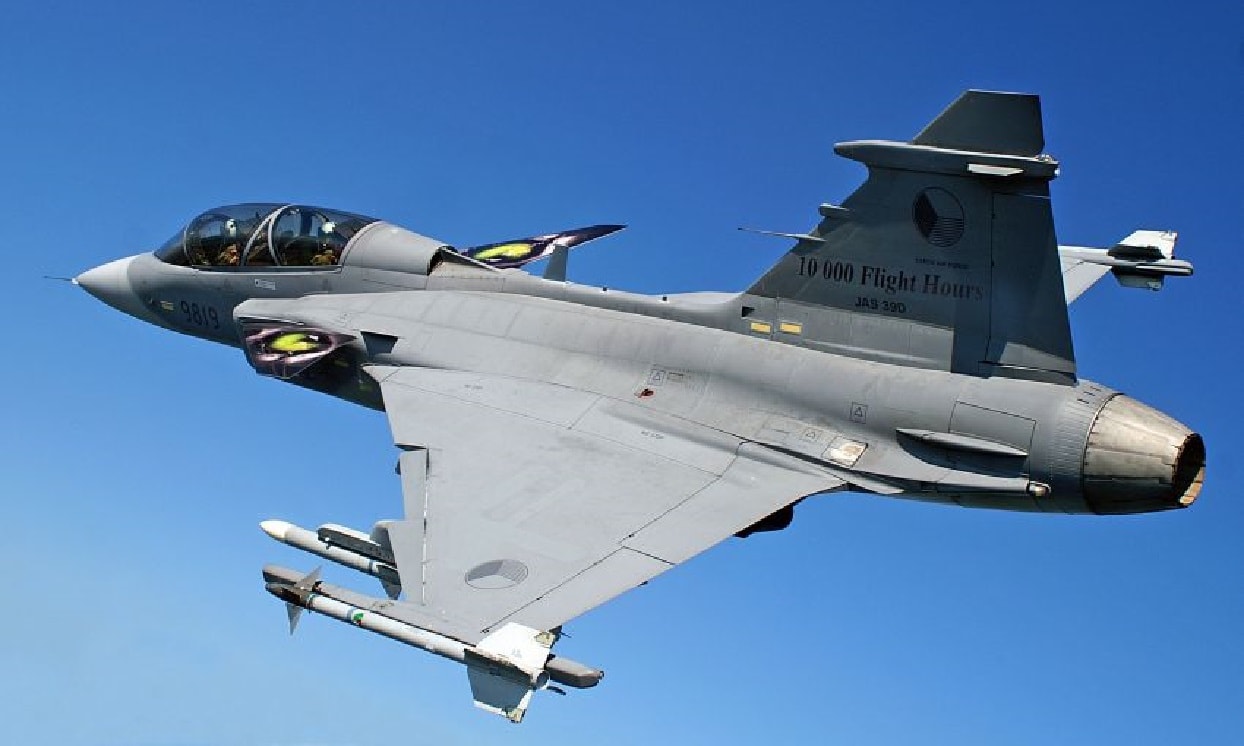Designed to replace the variants of the Saab 35 Viggen and Saab 37 Draken combat aircraft, Sweden’s JAS 39 Gripen was first flown in December 1988 and entered operational service with the Swedish Air Force in 1997. Developed as part of a joint effort by an industrial consortium that consisted of Saab, Saab Microwave Systems (formerly Ericsson), Volvo Aero Corporation, Saab Avitronics and FFV Aerotech, the Gripen was the first Swedish multirole combat aircraft – capable of conducting interception, ground-attack, and reconnaissance.
The fourth-generation fighter is a highly-advanced aerial platform that was developed with the latest in digital controls and weapons delivery, while also being produced as a sleek fighter to meet the strict demands of the Swedish Air Force.
History
The origins of the Saab JAS 39 Gripen (Griffen) date back to the late 1970s when the government in Stockholm began to explore the development of an aircraft that could be capable of fighter, attack and recon missions. After evaluating a number of existing foreign aircraft including the American F-16 and F-18 fighters, the Swedish Parliament decided in June 1982 to move forward with the Swedish project. A contract was signed between the Saab-led consortium and the Defence Material Administration to develop the new aircraft.
The single-engine, multirole-combat aircraft was designed with a single pilot, but the B and D versions were also developed featuring a longer canopy for a crew of two. Since being introduced in 1997, a total of 204 aircraft in three batches had been ordered by Swedish Air Forces, which to date has taken delivery of 74 aircraft. A total of 158 Gripens were produced as of 2016, and it was exported around to the globe.
Current operators include Brazil, the Czech Republic, Hungary, South Africa and Thailand, while the United Kingdom’s Empire Test Pilots’ School operates Gripens in a training capacity.
Tech

